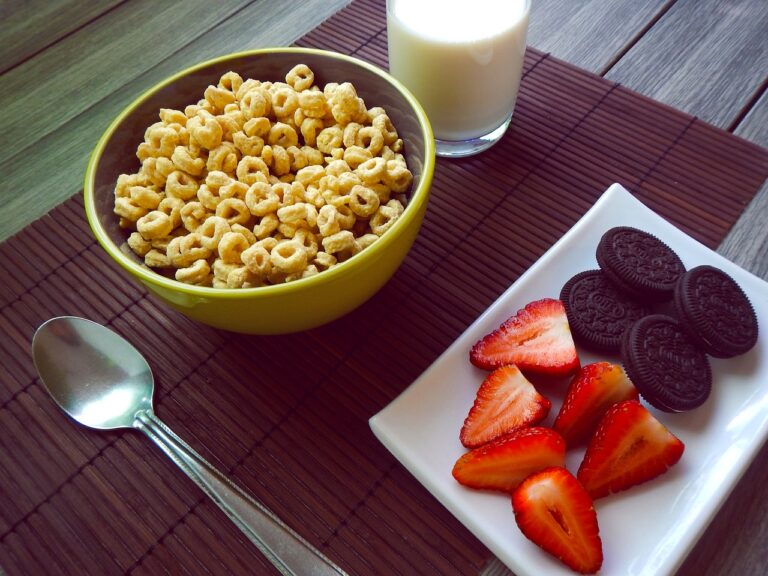The Psychology of Comfort Snacking: 11xplay online, Gold365 com, Skyfyer
11xplay online, gold365 com, skyfyer: The Psychology of Comfort Snacking
We all have those moments when we turn to food for comfort. Whether it’s a stressful day at work, a breakup, or simply feeling bored, many of us reach for a snack to help ease our emotions. But have you ever stopped to think about why we do this? What is it about snacking that makes us feel better?
In this blog post, we’ll dive into the psychology of comfort snacking and explore the reasons behind this common behavior. From the emotional triggers that lead us to snack to the ways in which our brains respond to certain foods, we’ll uncover the complex relationship between our minds and our munchies.
The Emotional Triggers of Comfort Snacking
One of the primary reasons why we turn to food for comfort is the emotional connection we have to certain foods. From childhood memories of enjoying ice cream on a hot summer day to the feeling of warmth and security that comes from cozying up with a bowl of soup, our emotional ties to food run deep.
In times of stress or sadness, these comforting memories can be incredibly powerful, leading us to seek out familiar foods that make us feel better. This is why we often turn to snacks like chips, cookies, and other indulgent treats when we’re feeling down they provide a sense of comfort and security that is hard to find elsewhere.
The Role of Dopamine in Comfort Snacking
But it’s not just our emotional connections to food that drive us to snack for comfort there’s also a biological component at play. When we eat certain foods, our brains release dopamine, a neurotransmitter that is often referred to as the “feel-good” chemical.
Dopamine is responsible for the feelings of pleasure and reward that we experience when we eat delicious foods, which is why we often crave these types of snacks when we’re feeling low. In essence, our brains have learned to associate certain foods with feelings of happiness and satisfaction, leading us to seek them out when we need a pick-me-up.
The Impact of Stress on Snacking Habits
Stress is another common trigger for comfort snacking. When we’re under pressure or feeling anxious, our bodies release cortisol, a stress hormone that can increase our cravings for high-calorie foods.
This is because cortisol triggers a fight-or-flight response in our bodies, prompting us to seek out quick sources of energy like sugary snacks to help us cope with the stress. Unfortunately, these types of snacks can lead to a cycle of emotional eating, as we turn to food for comfort when we’re feeling stressed and then feel guilty or ashamed about our choices afterwards.
Breaking the Cycle of Comfort Snacking
If you find yourself turning to food for comfort on a regular basis, it’s important to take steps to break the cycle and develop healthier coping mechanisms. One way to do this is to practice mindful eating, paying attention to your hunger cues and the emotions that may be driving your snacking habits.
Additionally, finding alternative ways to manage stress and boost your mood such as exercise, meditation, or spending time with loved ones can help you break the cycle of emotional eating and develop a healthier relationship with food.
FAQs
Q: Why do I crave unhealthy snacks when I’m feeling sad or stressed?
A: Cravings for high-calorie foods during times of emotional distress are often driven by a combination of emotional and biological factors. These foods trigger the release of dopamine in the brain, which can create a temporary sense of pleasure and reward. Additionally, stress hormones like cortisol can increase cravings for sugary and fatty foods as a way to cope with stress.
Q: Is comfort snacking always a bad thing?
A: Comfort snacking itself is not inherently bad, as enjoying a treat every now and then can be a source of pleasure and comfort. However, when comfort snacking becomes a coping mechanism for dealing with emotions or stress, it can lead to unhealthy eating habits and contribute to weight gain. It’s important to find a balance and develop healthier ways to manage emotions and stress.
Q: How can I break the cycle of emotional eating?
A: Breaking the cycle of emotional eating involves identifying your triggers, practicing mindful eating, and finding alternative ways to cope with stress and emotions. Learning to recognize when you’re eating for emotional reasons rather than hunger can help you develop healthier habits and a more positive relationship with food.







